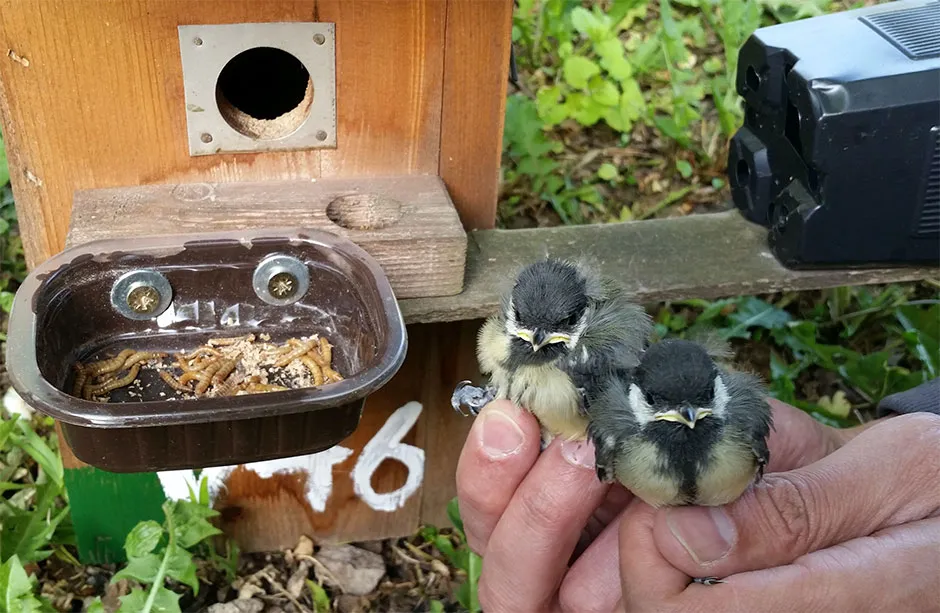Boosting insect populations in urban areas could help great tits in cities have the same breeding success as their forest-dwelling counterparts, according to research.
Scientists have found chicks that were provided with additional high-quality food showed a 2g increase in their body mass and had better breeding success as adults.
According to Dr Gabor Seress, of the University of Pannonia in Hungary, who is lead author on the study, this weight gain was around 15 per cent when compared with the nestlings which did not receive any extra food.
Read more about birds:
- Birds cool their beaks when food is scarce to save energy
- Birds are getting smaller as the climate gets warmer
He said: “This is a substantial difference. This greater body mass when leaving the nest may increase the chicks’ chance of surviving to spring and breeding themselves.”
While reduced breeding success has been observed in urban bird populations, the researchers said their study, published in the British Ecological Society’s Journal of Animal Ecology, is the first to show that access to abundant nutritious food during developmental stage can help great tits overcome the disadvantages of living in urban areas.

Dr Seress said: “Most songbirds require an insect-rich diet to successfully raise many and vigorous young, and urban areas generally support fewer insects than more natural habitats, especially caterpillars, which are key components of the optimal nestling diet for many species.”
A team of researchers, which included scientists from the University of Sheffield, studied great tits in nest boxes at urban and forest sites in Hungary.Both sites had control groups where the birds did not receive any additional food from the researchers.
Nutritionally-enriched mealworms were provided throughout the rearing period and the scientists recorded the size, weight and survival rate of the nestlings when they were 15 days old.However, the researchers acknowledge artificially providing city birds insect-rich food may not be the best solution.
Dr Seress said: “Instead of directly supplying high-quality bird food to enhance urban birds’ breeding success, we believe that management activities that aim to increase the abundance of insects in the birds’ environment, would be more effective.
“Insects are the cornerstone of healthy and complex ecosystems and it is clear that we need more in our cities.”
Read more about insects:
- Over a quarter of land-dwelling insects lost in the last 30 years
- Pesticides cause ‘permanent and irreversible’ damage to baby bee brains
The scientists think urban insect populations would need to increase by more than twofold for city-dwelling great tits to have the same breeding success as those living in forests.The researchers also believe further studies are need to understand more about city insects.
Dr Karl Evans, of the University of Sheffield and co-author of the research, said: “There is a clear need for additional research to understand which of the many aspects that differ between urban and more natural areas causes the reduced abundance of insects in our cities and towns.
“This is essential in order to improve the habitat quality of urban environments for nesting birds.”
Reader Q&A: Do birds fart?
Asked by: Lorely Maskell
Birds have an anus, and so technically could fart, but to date there’s been no official evidence that they do. One theory is that they don’t need to fart like humans and other mammals because they have a faster rate of digestion – their food simply doesn’t spend long enough in their short gastrointestinal tracts to ferment and form gas.
Another theory is that birds’ guts don’t contain the same gas-forming bacteria as mammals. It’s also possible that ornithologists have missed bird farts because they leak out passively rather than in one eruption, or birds could be burping to release unwanted gas instead.
Read more:
